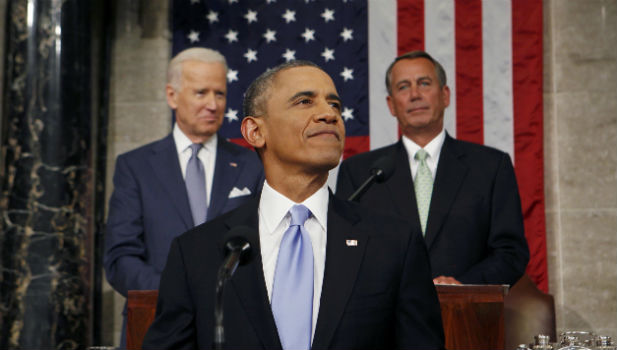This past Tuesday President Obama gave the final “State of the Union” address of his presidency. I’ve noticed over the years that in every speech any of our recent presidents have given, they always proclaim “and the state of our union is strong.” This President’s final speech ended on that proclamation, but such could not be further from the truth.
We have seen our nation sorely divided at several times during our history. The Federalists under John Adams versus the Republicans led by Thomas Jefferson. The southern states versus the northern states throughout most of our history. Racial divisions, economic divisions, etc have at times been severe, and today these are as prominent as they have not been for some time, thanks in large part to this president’s leadership (or lack of) and agenda.
Today, these speeches by the sitting president have turned into a big production with little relation to what was originally intended by the founders. Any more, they are nothing more than a big “pep rally” where the party In power gives itself a huge “pat on the back” and a long laundry list of “ornaments” it wants to “hang on the tree” of government expansion.
Such was not always the case. As a matter of fact, if you read some of these addresses by our early presidents you will see where they read more like a corporate annual report – facts, plans and real accounting of revenues and expenditures. Not only this, but in some instances the speeches were not even delivered orally, but rather were sent to the Congress in letter form.
So, by way of example, I close by sharing with you some quotes from President Thomas Jefferson’s first “Annual Message” (as it was called then), and you can compare the tenor of it with what you heard on Tuesday evening:
“When we consider that this government is charged with the external and mutual relations only of these states; that the states themselves have principal care of our persons, our property, and our reputation, constituting the great field of human concerns, we may well doubt whether our organization is not too complicated, too expensive; whether offices or officers have not been multiplied unnecessarily, and sometimes injuriously to the service they were meant to promote. I will cause to be laid before you an essay toward a statement of those who, under public employment of various kinds, draw money from the treasury or from our citizens. Time has not permitted a perfect enumeration, the ramifications of office being too multipled and remote to be completely traced in a first trial. Among those who are dependent on executive discretion, I have begun the reduction of what was deemed necessary. The expenses of diplomatic agency have been considerably diminished. The inspectors of internal revenue who were found to obstruct the accountability of the institution, have been discontinued. Several agencies created by executive authority, on salaries fixed by that also, have been suppressed, and should suggest the expediency of regulating that power by law, so as to subject its exercises to legislative inspection and sanction. Other reformations of the same kind will be pursued with that caution which is requisite in removing useless things, not to injure what is retained….
Considering the general tendency to multiply offices and dependencies, and to increase expense to the ultimate term of burden which the citizen can bear, it behooves us to avail ourselves of every occasion which presents itself for taking off the surcharge; that it may never be seen here that, after leaving to labor the smallest portion of its earnings on which it can subsist, government shall itself consume the residue of what it was instituted to guard.
In our care, too, of the public contributions intrusted to our direction, it would be prudent to multiply barriers against their dissipation, by appropriating specific sums to every specific purpose susceptible of definition; by disallowing applications of money varying from the appropriation in object, or transcending it in amount; by reducing the undefined field of contingencies, and thereby circumscribing discretionary powers over money; and by bringing back to a single department all accountabilities for money where the examination may be prompt, efficacious, and uniform.”
This is just a sample of what a real President, intent upon upholding the Constitution he took an oath to protect and having an interest in securing our freedom and liberties would say. Alas, this is not the kind of rhetoric we heard on Tuesday evening.
-January 15, 2016
